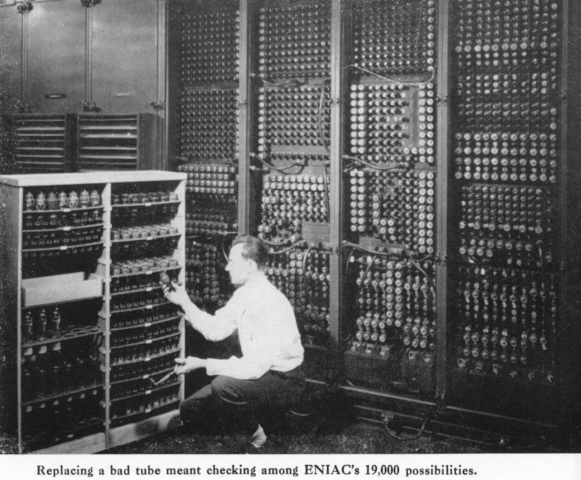Technology Upgrade
In the engineering profession it is essential to keep up with the latest technology, technology which is derived from the latest scientific discoveries. For managers, however, it seems like they are fed a constant stream of quick-fix, one-size-fits-all fads full of buzzwords, which are not always based on science, but on what worked for somebody else in a completely different situation. Management itself has been described as a technology, one that began in the 1850’s that grew out of the industrial era. However, this technology has not kept up with modern science. Many practices and tools we currently use are based on 1950’s psychological theories, such as the use of external rewards and punishments. Other practices date to the 1800’s like the reliance on the time clock as the primary tool to track work. Can you imagine trying to accomplish your task effectively by only using 60 year-old technology? Yet, that is what many managers are doing today.
Managers Are the Good Guys
I don’t want you to get the wrong idea. It is how our culture views management that is the problem, not the managers themselves. Managers are not the bad guys, they are not the enemy. They are not clueless nor do they lack intelligence. In fact, I think it is quite the opposite. We usually try to pick the best and the brightest to lead our efforts. I believe it is the environment and the culture that produces the current output of outdated management methods. I believe most managers lack the resources and support to do their job well. Managers are developers and designers of systems, only their systems are teams and organizations. These systems are very complex in how the different pieces work and interact with each other, yet their creators are most often just thrown into the job with a few words of encouragement and little understanding of how these systems operate. It is ironic that those whose primary job is to support others, have little or no support themselves from their own leaders. So next time you think about that boss who drives you crazy, give him or her a break, they were most likely thrown into a complex situation with little or no training, direction, or support; and usually with a long list of bad examples and outdated principles as their only resources. It would be like trying to design a modern computer using vacuum tube technology. A handful of our managers are, in fact, so bright that they figure these things out on their own with no help from anybody. Many of us are lucky enough to have run across such a person, the manager who understands people; the one who treats people with respect while also getting the most out of their organizations and producing results.
Building Better Managers
A good manager isn’t born, they are taught, honed, and nurtured. Management should be viewed as a craft. It takes knowledge and skills that take years to master just like any other occupation. They need continual study and research. They should receive classes and workshops based on the latest science and research and not on the latest fad. Stop trying to force what works in one situation (Lean Six Sigma in production) on every other situation (white collar jobs). In fact, just stop pushing anything down their throats, like many top-down directives are nowadays, but make them available as a resource. Trust them to learn things on their own, but at the same time provide them support and resources. Managers also need mentors; they need coaching themselves. They need feedback. They need people who will help them see what is hidden from their view by their own biases. They need to learn what science says about how to motivate human beings and about the necessary variables needed for creativity to occur. There is no one-size-fits-all technique, program, or book that will be the answer to all situations, and we need to stop looking for one. What managers need is a sound understanding of human behavior, and a broad range of techniques and methods to choose from so they can adapt to each situation as they see fit. This is the shift that needs to happen in how we approach management. It is not going to be gained in a one-week training course, it will be gained one day at a time over a prolonged period of time with sustained support all along the way. The managers in turn, will go and do the same for their employees for whom they are responsible.
The Happy Future of Management
In my mind managers may become an extremely powerful force for good. They will become teachers, they will help people fulfill their potential. They will be enablers – connecting people and ideas across the organization. They will be scientists researching their own craft. They will be innovators. They will be creators of environments where teams, groups, and organizations flourish. With this approach, I believe management, like engineering, will be intrinsically challenging and rewarding, even enjoyable. With this approach I believe almost all managers will wake up in the morning with happy anticipation for the work day.
Finding the Time
You may be thinking, this is all fine and dandy but I don’t have the time to research and study, to mentor and to be mentored. Here is a suggestion for increasing the time you and your employees have available – cancel a meeting. If you want even more time, cancel more than one meeting. Trust me, nobody will miss them and the tasks that have to be accomplished in those meetings will still get completed. Moreover you won’t disrupt the flow of everyone else’s workday. So cancel a meeting and instead find that person who seems to have it figured out and try to learn from them, find a mentor.
Links and Resources Used:
Intentional Workplace – Why Neuroscience Should Change the Way We Manage People
